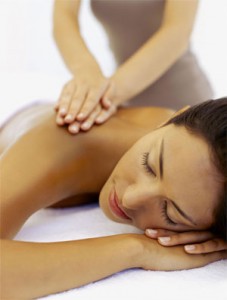7 Surprising Benefits of Massage Therapy During Recovery
 If you’re interested in a holistic approach to addressing your substance abuse issues, massage therapy may be an option to consider. Although it’s not a commonly used part of addiction treatment, massage therapy offers several benefits to people in recovery. Here are some of the reasons why:
If you’re interested in a holistic approach to addressing your substance abuse issues, massage therapy may be an option to consider. Although it’s not a commonly used part of addiction treatment, massage therapy offers several benefits to people in recovery. Here are some of the reasons why:
1. Promotes Detoxification
The squeezing and pulling motions we associate with a professional massage do more than just feel good. They help flush lactic acid from the muscles and boost blood flow to the limbs. This improvement in vascular function continues for several days after the massage has ended, which is why professional athletes often rely on massage to keep them in competitive shape.
Since massage helps improve circulation, it can aid in the detoxification process by allowing for a more efficient expulsion of toxic waste products away from the body. The invigoration of blood and lymphatic fluid also helps to promote a better utilization of oxygen-rich nutrition into the various organs and tissues.
2. Releases Endorphins
After the detoxification stage of addiction treatment, the body’s neurochemistry requires time to get back in balance. Drug and alcohol abuse prevents the release of natural endorphins, which means someone who is newly sober needs a little extra help convincing the body to manufacture these “feel good” chemicals.
Research has shown massage therapy increases the amount of beta-endorphins in the blood. Manufactured in the hypothalamus and pituitary gland, beta-endorphins offer a chemical-free way for those in recovery to feel more like themselves. If you’re engaged in a regular exercise program as well as massage therapy, these benefits are further enhanced.
3. Reduces Chronic Pain
For someone who turned to drugs or alcohol as a way to cope with chronic pain, massage can be a way to heal the body. Regular massage can lower pain levels and promote a more restful sleep—leading to improved mood and energy throughout the day.
If you suffer from opioid addiction related to chronic pain, regular massage therapy sessions can be particularly beneficial. Recovering prescription opioid abusers are often reluctant to use any type of pain medication for fear of relapse, but massage can be combined with alternative treatments such as yoga and acupuncture to naturally increase the body’s serotonin levels.
4. Reduces Stress
Chronic stress can weaken the immune system and create mood disturbances. Massage therapy helps those in recovery feel more relaxed and in control of their newfound sobriety by lowering cortisol levels.
Cortisol is the body’s primary stress hormone. It increases glucose in the bloodstream and increases the availability of hormones to promote tissue repair, helping the body to be primed for a “fight or flight” situation. Although this is helpful when you’re actually under attack, an excess of cortisol can lead to stress-related problems such as weight gain, digestive problems, headaches, sleep disturbance, and difficulty concentrating.
5. Addresses Co-Occurring Disorders
If you suffer from co-occurring disorders such as anorexia, bulimia, depression, bipolar disorder, or PTSD, massage therapy can help by triggering the body’s relaxation response. It’s not a substitute for talk therapy, but massage can help you feel more open and comfortable expressing your emotions. This can enhance the effectiveness of your overall treatment plan, reducing the urge to self-medicate with drugs and alcohol.
6. Helps Overcome a Fear of Touch
If you’ve been physically or sexually abused in the past, touch may be associated with negative feelings. Massage therapy encourages the brain to associate physical contact with more positive sensations.
Psychologists who study trauma have stated that being a victim of abuse undermines five of our most basic human needs: safety, trust, control over one’s life, feeling of value, and experiencing closeness with others. The intimacy of massage therapy provides a safe and therapeutic way to meet these needs, thus offering a foundation for healing.
7. Enhances Self-Awareness
An essential part of addiction recovery involves learning to manage personal addiction triggers. Understanding how feelings of boredom, anger, frustration, or anxiety trigger the urge to use helps you be proactive in managing your sobriety.
Regular massage helps build an awareness of your own body, including where tension exists and patterns that can lead to an increase in negative emotions. This can make it easier to develop productive strategies for controlling cravings and avoiding relapse.
How to Incorporate Massage Therapy into Your Recovery
Massage therapy can’t cure addiction on its own, but the guidance of a qualified massage therapist can offer numerous benefits as part of a broader evidence-based drug and alcohol treatment program. If you’re interested in incorporating massage therapy into your treatment, this issue can be discussed with your counselor as you’re developing your recovery plan.
By Dana Hinders
To learn more about our programs, please visit our website.
Related articles:
